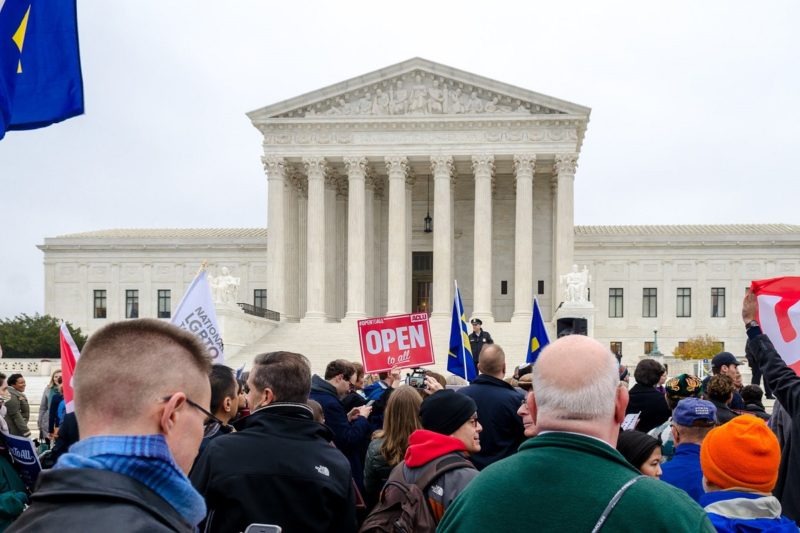Supreme Court Lets Mississippi’s Anti-LGBTQ Law Stand—for Now
“We will keep fighting in Mississippi until we overturn this harmful law, and in any state where anti-gay legislators pass laws to roll back LGBT civil rights."

The U.S. Supreme Court on Monday refused to hear a challenge to a Mississippi law that allows businesses and government workers to use religious objections to deny service to LGBTQ people, leaving in place one of the nation’s most anti-civil rights laws.
Mississippi’s Republican-dominated legislature passed HB 1523 in April 2016 in response to the landmark Supreme Court decision Obergefell v. Hodges, which recognized the rights of LGBTQ people to marry. Mississippi’s religious imposition law prevents the state from taking legal action against someone who refuses to serve LGBTQ people on the basis of that person’s religious beliefs or moral convictions opposing same-sex marriage, the existence of transgender people, as well as beliefs opposing having sex outside of a “traditional” male-female marriage.
Advocates sued to block the law, arguing the measure was unconstitutional. In June 2016, a federal district court temporarily blocked the law from taking effect. Attorneys for the State of Mississippi appealed to the U.S. Court of Appeals for the Fifth Circuit. The Fifth Circuit reversed the lower court’s temporary injunction in June 2017, claiming the plaintiffs lacked standing to challenge the law. Attorneys on behalf of the challengers urged the Supreme Court to reverse the Fifth Circuit and let the legal challenge to Mississippi’s law proceed.
On Monday, the Roberts Court declined to do so.
“The Supreme Court’s decision not to review this case is not an endorsement of HB 1523 or the wave of similar discriminatory laws across the country, and it does not change what the Court clearly ruled in Obergefell v. Hodges, and more recently in Pavan v. Smith, that same-sex couples and their families should be treated like other families in this country and not to do so is harmful and unconstitutional,” Beth Littrell, Lambda Legal counsel, said in a statement. “Twenty years ago we fought a similar battle in Colorado against an anti-LGBT law that singled out LGBT people for unequal treatment, in Romer v. Evans and we won.”
“We will keep fighting in Mississippi until we overturn this harmful law, and in any state where anti-gay legislators pass laws to roll back LGBT civil rights. Unfortunately, the Supreme Court’s decision today leaves LGBT people in Mississippi in the crosshairs of hate and humiliation, delaying justice and equality.”
